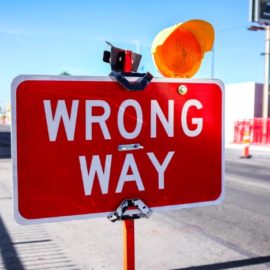

This article is an excerpt from the Shortform book guide to "The Monk Who Sold His Ferrari" by Robin Sharma. Shortform has the world's best summaries and analyses of books you should be reading.
Like this article? Sign up for a free trial here .
What is the illusion of reality? How does The Monk Who Sold His Ferrari suggest confronting the illusion of reality?
The illusion of reality is the theory that the philosophical theory that there is no objective reality. Everything is open to interpretation and what you consider to be a good thing could be someone else’s worst nightmare.
Read on for what The Monk Who Sold His Ferrari says about the illusion of reality and confronting it.
How to Confront the Illusion of Reality
One of the most fundamental bits of wisdom is also the simplest: There is no such thing as objective reality. One person’s worst enemy is another’s best friend. Similarly, what seems like a tragedy could be a great opportunity, such as Julian’s heart attack. In short, do not consider events to be “good” or “bad.” Just live them, and accept what they have to teach you.
To illustrate the point, Julian tells the story of a beloved local schoolteacher in India whose school was burned down by arsonists. However, the school had been very old and run down. With the community’s help, she was able to replace it with a newer, better one, and the students prospered. This shows how you can find opportunity in hardship, demonstrating the illusion of reality.
The Secret of the Lake
Julian then teaches John another exercise: the Secret of the Lake. It doesn’t require an actual lake; it’s only called that because the Sages stared into a nearby lake while performing this exercise.
Find a quiet place, close your eyes, and simply breathe until you feel calm and your mind is clear. Then visualize, as clearly as you can, the person you want to be. For example, if you want to be happy, see yourself laughing and smiling. If you want to be brave, see yourself acting boldly at a decisive moment. This exercise can be considered practice for when similar situations come up in reality.
This exercise is grounded in the idea that your mind attracts what you want. Therefore, if there is a lack in your life, it’s because there is a lack in your thoughts. The Secret of the Lake is a technique to make sure you are attracting the right things.
This principle can be illustrated by the phenomenon where you find a new interest, and then suddenly notice people talking about it everywhere. Raman calls it joriki, which means “concentrated mind.” (Shortform note: Some readers may recognize this by its more scientific name, the Baader-Meinhof Phenomenon.)
Make Your Own Way to Address the Illusion of Reality
At this point, John protests that he would feel strange doing such exercises to confront the illusion of reality in the office. He’s worried about what his associates and employees would think. Julian responds that you must do what you know is right, and not worry about what others think. On a similar note, you must not compare yourself to others and measure your worth against theirs. The only one you should try to be better than is the person you were yesterday.
It’s now after midnight, and John mentions with surprise that he doesn’t feel tired at all. He’s told that fatigue is mostly a mental construct. For example, people who feel exhausted at work will spring to life if asked to do something they enjoy or are passionate about.
John remarks that a lot of what Julian says seems obvious now that it’s been spelled out, but he’d have never thought of it himself. He muses that maybe common sense isn’t so common after all.

———End of Preview———
Like what you just read? Read the rest of the world's best book summary and analysis of Robin Sharma's "The Monk Who Sold His Ferrari" at Shortform .
Here's what you'll find in our full The Monk Who Sold His Ferrari summary :
- Why your career success might actually be killing you
- How to live a simple and fulfilling life
- The 10 rituals you should practice for health and healing






